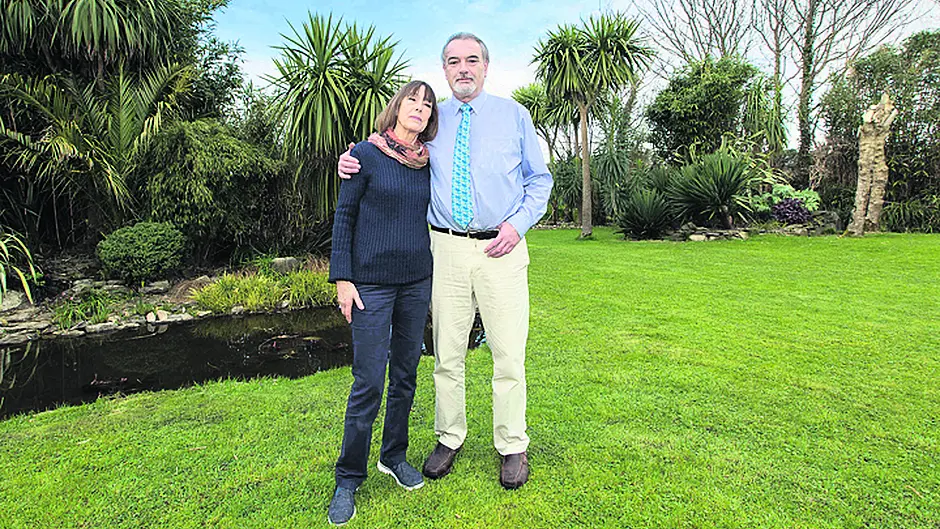The High Court has refused to order the extradition of Ian Bailey to France in relation to the death of Sophie Tuscan du Plantier, dismissing the Minister for Jusitce's application as an ‘abuse of process', among other reasons.
by Ruaidhrà Giblin
THE High Court has refused to order the extradition of Ian Bailey to France in relation to the death of Sophie Tuscan du Plantier, dismissing the Minister for Jusitce's application as an ‘abuse of process', among other reasons.
Mr Bailey (60) of The Prairie, Liscaha, Schull, denies any involvement in the death of Ms du Plantier, who was found dead outside her holiday home in Schull in December 1996.
Outside the court last week, Mr Bailey reiterated once more that he had ‘nothing to do' with du Plantier's death.
French authorities had previously sought the surrender of Mr Bailey in 2010 but this application was refused by the Supreme Court in 2012. A second extradition request was transmitted to Ireland last summer, seeking the surrender of Mr Bailey for alleged voluntary homicide.
Mr Bailey, who claims gardaà tried to frame him for the killing of Ms du Plantier, could be tried in France in his absence.
Refusing the surrender of Mr Bailey on Monday, Mr Justice Tony Hunt said the Minister was halted from obtaining an order for Mr Bailey's surrender in light of the Supreme Court's judgment in 2012 on identical relevant facts.
Mr Justice Hunt said he would also refuse surrender because, in the unique circumstances of this case, it was an ‘abuse of process', for five distinct reasons, for the Minister to seek surrender on the fresh warrant.
Mr Justice Hunt also said he did not need a reference to the Court of Justice of the European Union (CJEU), as had been requested by the State.
 He said it appeared to him that the underlying theme of the Minister's application was a ‘conviction that the majority of the Supreme Court were in error' in 2012.
A five-judge panel of the Supreme Court refused to surrender Mr Bailey in 2012 and four of the five judges upheld Mr Bailey's argument that Section 44 prohibits surrender because the alleged offence was committed outside French territory and Irish law does not allow prosecution for the same offence when committed outside its territory by a non-Irish citizen.
Opposing surrender at a High Court hearing in May, counsel for Mr Bailey, Garrett Simons SC, said there was ‘no way around' the Supreme Court decision in 2012.
Mr Simons said Section 44 of the European Arrest Warrant Act 2003, which implemented the European Framework Decision on extradition between member states, was determined by the Supreme Court as an ‘absolute bar' to Mr Bailey's surrender and that that bar continued to apply.
In a written judgment handed down, Mr Justice Hunt said he believed the application should be dismissed as an abuse of process for five reasons.Â
There was the binding and conclusive decision of the Supreme Court on the extra-territoriality issue; five years had passed since that decision and it was now 21 years since the death of Ms du Plantier; there had been no engagement by the Minister of the French authorities with the ‘unusual fact in an extradition case' that Mr Bailey's alleged involvement in the death of Ms du Plantier had been ‘comprehensively and repeatedly investigated and considered by the police force and prosecuting authorities' in Ireland.
Fourthly, even if it were subsequently decided that the Supreme Court was wrong, it was ‘highly debatable' whether that would result in the rendition of Mr Bailey and the ‘forfeiture' of the earlier ruling in his favour.
Fifthly, Mr Justice Hunt said he considered the ‘conduct' of the first proceedings. He said the ‘tactical decision to proceed on all fronts, notwithstanding manifest difficulties ... makes the current position of the Minister untenable.'
Mr Justice Hunt said he did not consider it necessary to obtain the opinion of the European Court, as had been requested by the Minister.
Speaking outside court, Mr Bailey said: ‘I tend not to have reactions to this long ongoing ordeal.Â
‘Obviously I'm pleased and delighted with the judgment today and I thank Judge Hunt for that judgment.Â
‘I would also thank my legal team who have been amazing.'
Mr Bailey added that this was ‘not the end of it'.Â
‘The State will almost certainly appeal that decision. It's noticeable that the State, who took this case against me, and have put me through a form of torture for 20 years on-and-off, were not even represented in court today,' he said on Monday.Â
‘There was nobody there, which is astonishing.'
He said he did not know if the French would go ahead with a trial in his absence. When asked if he had a message to the French, Mr Bailey said: ‘I have always said, I'm very sympathetic to the family and I know that they believe for whatever reason that I had something to do with the death of their daughter.Â
Mr Bailey added: ‘And I'm very sympathetic, but I had nothing to do with it. I can't say very much more than that.'








